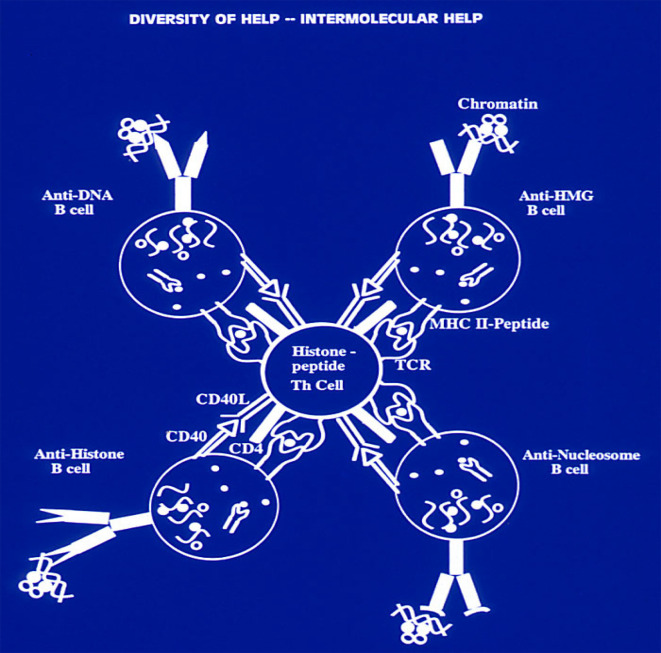Figure 4.
Production of a variety of anti-nuclear autoantibodies by inter-molecular T-cell help in SLE. A lupus Th cell with specificity for an individual nucleosomal histone peptide can help either a B cell specific for nucleosomes, or a B cell specific for dsDNA, or for ssDNA, or histone, or HMG, because each B cell can take up and process the whole chromatin particle by recognizing its own specific epitope in the chromatin, and then present to the Th clone its relevant histone peptide epitope derived from chromatin processing, which results in “inter-molecular help” This principle of linked “inter-molecular help” for a variety of B-cell epitopes in the complex chromatin particle would also apply to other Th cells of lupus which induce other pathogenic autoantibodies; and forms the basis for “Tolerance-Spreading” as described in the text. Modified from Ref (109, 120). (Originally published in The Journal of Immunology. Kaliyaperumal A, Michaels MA, Datta SK. Antigen-specific therapy of murine lupus nephritis using nucleosomal peptides: Tolerance spreading impairs pathogenic function of autoimmune T and B cells. J Immunol (1999) 162:5775-83. Copyright © [1999] The American Association of Immunologists, Inc.).

